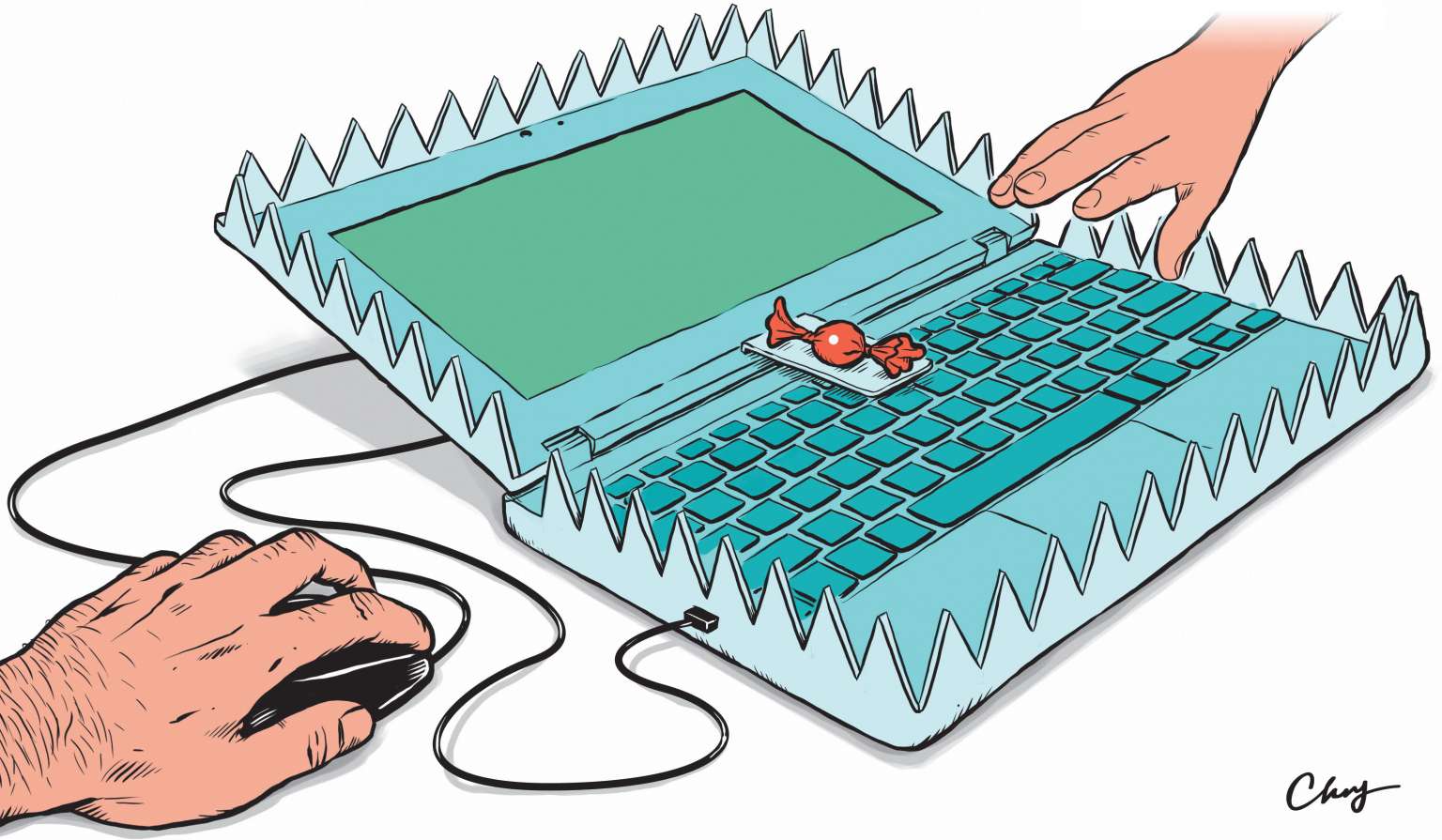Meeting strangers after Web chats: Kids 'need guidance'
A third of students who had meet-ups rated the encounters as slightly or very unpleasant: Poll
Sign up now: Get ST's newsletters delivered to your inbox

ST ILLUSTRATION: CHNG CHOON HIONG
Janice Tai, Amelia Teng
Follow topic:
"Don't talk to strangers" - that is what parents often tell their children. Yet children today are not only chatting with strangers online, but also meeting them in real life.
A poll of 2,500 upper primary and secondary school children found that a third of the older students and a tenth of the younger ones had met up with someone they had first encountered online in the past year.
About a third of the students who had these meet-ups rated the encounters as slightly or very unpleasant, meaning they would think twice about meeting the person again, or not meet the person a second time as negative things had happened.
"We did not ask them to specify why they were unpleasant as some may be uncomfortable sharing it but, anecdotally, we have heard cases of bullying, cheating scams and sexual predation," said Mr Chong Ee Jay, manager at Touch Cyber Wellness, a voluntary welfare group that teaches Internet safety.
The survey was done by Touch from January to May this year to better understand online behaviours among the young, especially befriending strangers online.
Mr Chong said they wanted to collect data on this issue as there have been cases reported in the news about online friends who turned out to be child sex predators.
In Singapore's worst case of sexual abuse of boys so far, a 31-year-old Malaysian engineer was sentenced to 30 years' jail and the maximum 24 strokes of the cane in March for sexually assaulting 31 boys, some as young as 11, whom he met online.
-
TIPS FOR CHILDREN MEETING SOMEONE THEY GOT TO KNOW ONLINE
1. Meet the person in a public place such as an MRT station or shopping centre, where others have a full view of you.
2. Get a trusted friend to accompany you.
3. Keep your parents updated on your whereabouts and who you are meeting.
4. Take a photo or video of the meeting as it may serve as evidence, or help in identifying the perpetrator if things go wrong.
5. If the person makes you feel uncomfortable, talks about sex or tries to make you do something you are unwilling to do, walk away. You should block or ''unfriend'' this person online later and tell your parents about the exchange.
He used different identities to befriend the boys on Facebook and tricked some of them into thinking that they had mutual friends.
Digital media experts and counsellors say that while children are more socially savvy nowadays, they need more guidance on protecting themselves both online and offline as more young people take the interactions beyond their screens.
The Touch survey showed, for example, that the second-most-cited reason for young people meeting online friends face-to-face is to transact online purchases, after the top reason of making friends.
Correspondingly, social networking service Facebook and online marketplace Carousell were named by the children and teens as the top two platforms through which they got to know the people they eventually met. The other channels are online games, photo-sharing service Instagram or Twitter.
"With the proliferation of such platforms, it is easy for any ill-intentioned stranger to befriend someone on multiple sites to piece together all the information on the victim that would allow him to come up with a better strategy to target the person," said Mr Chong.
"For upper primary pupils, they are impressionable and may be unable to discern well enough to protect themselves," he added.
For example, he has managed cases where the person who went for the meeting does not match the description given or his online profile picture. These people may be sexual predators or scammers out to cheat the sellers by making off with the products without paying.
In other cases, a group of people turned up instead of an individual to bully the child and extort money from him.
Dr Carol Balhetchet, senior director for youth services at the Singapore Children's Society, said individuals sometimes turn out to be "a lot older than they said they were and they may want more than just to hold your hand".
"The danger is that the younger person is put in a compromising situation and it is hard for him or her to say no because they want to be socially accepted."
Mr Delane Lim, who heads Agape Group Holdings, a youth development organisation, said guidelines should be set for young people who want to meet people they have befriended online. "If anything, it's safer to go on group dates rather than one- to-one meet-ups," he said.
A student, who wanted to be known only as Ms Teo, said she started using OkCupid, an international dating app, two months ago to get to know more people.
"It is potentially dangerous - some guys have texted me for casual sex, and one of the friends I made told me that he had been blackmailed $2,000 for being shown a porn video when he agreed to video-call a person," she said. That is why she makes it a point not to give out information about herself easily.
Mr Chong said meeting online friends has become a cultural norm, so it would be more fruitful to get teachers and parents to guide young people than to stop these meetings.
"Cyber wellness and civics and moral education lessons in school must equip them with critical thinking skills in knowing what to do in different situations, and more channels, such as anonymous hotlines, must be set up for them to seek help beyond the police."

